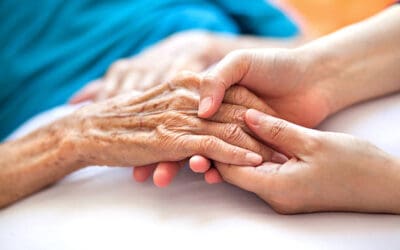
BLOG
Most Popular Posts
Understanding Palliative Care: How Home Healthcare Can Help
Palliative care is a specialized form of medical care aimed at improving the quality of life for individuals facing serious, chronic, or life-threatening illnesses. It focuses on relieving symptoms, managing pain, and addressing patients’ and their families’ emotional, social, and spiritual needs. One of the most effective ways to provide palliative care is through home healthcare, which enables patients to receive personalized medical attention in a familiar and comfortable environment.
The Role of Home Health Care in Promoting Heart Health for Seniors
As people age, maintaining heart health becomes increasingly critical. Seniors face a higher risk of cardiovascular diseases such as hypertension, heart failure, and coronary artery disease, which can significantly impact their quality of life.
How Home Health Aides Assist with Medication Management for Seniors
In senior care, medication management is a critical yet often complex responsibility. Many seniors rely on multiple prescriptions to manage chronic conditions, recover from illnesses, or maintain their quality of life. However, the intricate schedules, varying dosages, and potential side effects can be overwhelming, increasing the risk of missed doses or medication errors. This is where home health aides step in as vital allies, offering professional assistance and ensuring seniors stay on track with their prescribed treatments.
How Home Health Care Reduces the Risk of Falls in Seniors
Falls are one of the most common causes of injury among seniors, often leading to fractures, hospitalizations, and a decline in overall quality of life. For older adults, maintaining mobility and independence while minimizing risks is crucial. Home health care has emerged as a valuable solution to reduce the risk of falls, providing a safe and supportive environment tailored to each senior’s unique needs. This article explores how home health care contributes to fall prevention and enhances the well-being of seniors.
Caring from Afar: Tips for Long-Distance Family Caregivers
Caring for a loved one from a distance can be both a rewarding and challenging experience. Whether you’re separated by a few hours or several time zones, providing emotional support, managing medical care, and coordinating daily needs require careful planning and dedication.
How Technology is Transforming Home Healthcare for Seniors
In recent years, integrating technology into home healthcare has revolutionized how seniors access and receive medical and personal care. As the global population ages, the demand for innovative solutions to support seniors in maintaining their health, independence, and quality of life has skyrocketed. From wearable devices that monitor vital signs to telehealth services that connect patients with healthcare professionals, technology is bridging gaps in traditional care models, making home healthcare more efficient, accessible, and personalized.
Building Confidence: Emotional Gains from Physical Therapy at Home
Physical therapy is often associated with regaining physical strength, mobility, and functionality after an injury or surgery. However, the emotional benefits of physical therapy, particularly when conducted at home, are often overlooked. Building confidence is one of home-based physical therapy’s most significant emotional gains. It not only helps individuals reclaim their physical abilities but also fosters a renewed sense of self-worth, independence, and resilience.
The Benefits Of Speech Therapy For Seniors You Need To Know
As people age, their ability to communicate effectively can diminish due to various health conditions, including strokes, dementia, and other neurological disorders. This loss of communication not only affects their ability to express needs but also significantly impacts their emotional well-being and social connections. Speech therapy emerges as a powerful tool for helping seniors maintain and improve their communication skills, foster emotional resilience, and enrich their social lives.
Tips For Home Healthcare Success
Home healthcare is a lifeline for countless families, providing personalized care and support for loved ones in the comfort of their homes. Whether it’s managing chronic conditions, post-surgical recovery, or daily assistance for aging family members, effective communication is crucial for the success of home healthcare. When families and caregivers communicate clearly and collaboratively, it fosters trust, ensures proper care delivery, and promotes the well-being of the individual receiving care.
Home Health Care: Keeping Seniors Physically and Mentally Fit at Home
As the global population ages, the importance of home health care for seniors continues to grow. With the right approach, seniors can maintain their physical health, mental acuity, and overall well-being without leaving the comfort of their homes. Whether you’re a caregiver, a family member, or a senior, understanding the key elements of physical and mental fitness in-home care can significantly enhance the quality of life.










